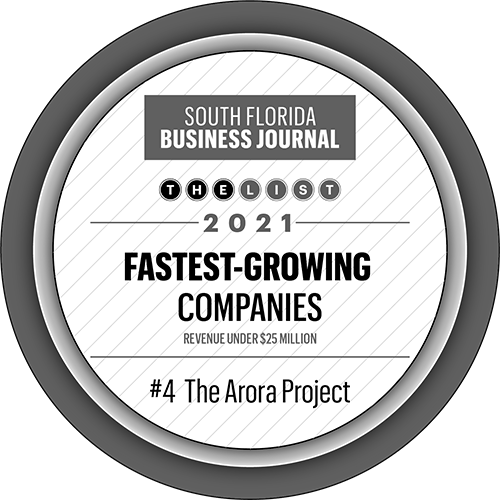
Whether you’re at the early stages of developing the next big idea or have an already established venture that’s ready to scale, it’s likely you need funds to make it happen. With equity crowdfunding, you could have quick access to capital, community and visibility, all without debt. Find out if it’s right for you, and how to get started.
You might be eager to share your passion with the world ASAP. You might not have great credit or sufficient collateral to secure a traditional loan, or you might think banks are a force of evil. Maybe you looked into seeking venture capital, only to find out that 99.95 percent are rejected at startup…
Whatever the reason, equity crowdfunding could be an excellent alternative to secure funds for your venture. So let’s look at some basics of equity crowdfunding, what a good candidate looks like, what to look for in a platform, and some general pros and cons.
What is Equity Crowdfunding?
It’s pretty straightforward: individuals, as well as institutions, invest money in a startup and receive some form of equity in return. Convertibles are early investments that turn into stock if the venture raises a “priced round” from major investors (usually VCs) later on. Stock is equity bought at a fixed price per share and generally available at a later stage of the venture. Stock with dividends is also a later-stage offering, and is common with local businesses that are scaling, offering a fixed dividend per share or a percentage of profits, sometimes in perpetuity.
Equity crowdfunding takes place on an equity crowdfunding platform, where the entrepreneur provides potential investors with a pitch, business history, and other information that helps them evaluate the venture’s potential for growth.
A Good Candidate for Equity Crowdfunding
Ventures with successful crowdfunding campaigns that attract both private and accredited investors tend to share some common traits, including:
- A scalable product
- A great pitch
- A network of potential investors
- A high growth potential
- A strong team
- Prior successful exits or IPOs
Equity crowdfunding is oftentimes a great option for businesses just starting out or ones that are ready to scale by offering more products or expanding markets. Both ventures used to mean racking up debt and having to pay back business loans—if you were lucky enough to get one. With equity crowdfunding, you give up a slice of your company to investors, but you get a multitude of benefits in return.
Finding the Right Equity Crowdfunding Platform
The number of platforms is increasing to meet demand as equity crowdfunding becomes more popular. There is now a wide range to choose from, with 50+ registered platforms. The top five platforms ranked by capital raised in 2020 are:
- WeFunder – $30.4M
- StartEngine – $27.2M
- Republic – $18.9M
- SeedInvest – $3.7M
- MicroVentures – $2.7M
There are many pros and cons to each, but here are some things to consider when choosing a platform:
- Size: there are pros and cons to both large and small platforms, with large ones providing access to more resources and experience along with a larger network, and smaller ones providing more intimate guidance and hand-holding.
- Funding history: the amount of funding and the number of backers the platform itself has can demonstrate that they know what they’re doing (for example, Wefunder closed out a $50m round in 2020).
- Investors on the platform: the higher the number of active investors on a given platform, the more money you can raise.
- Type of investors: consider the type of investor you’d like to attract. Accredited or non-accredited, large institution or mere mortal.
- Platform fees: some platforms charge a monthly subscription fee, others a commission based on the amount raised. Some platforms charge additional fees for marketing, listing, escrow or due diligence, just to name a few.
You might be thinking, so in addition to giving up shares of my company to investors, I also have to give up a percentage of my success to a…crowdfunding website? Yes, but you get plenty of perks in return: legal support, access to their entire network, and marketing—Wefunder, for example, sends out a dedicated email blast to their entire community on behalf of any campaign that hits a certain milestone. In addition, the mentorship provided throughout your campaign is invaluable to an early-stage or scaling startup.
The Pros and Cons of Equity Crowdfunding
With equity crowdfunding, you’re making one pitch, with one set of terms, and a known end date. This can really help startups stay focused by simplifying the process of raising funds.
Once you’ve done all your behind-the-scenes work to get ready to launch your campaign, getting it off the ground is generally easy. You’re pitching thousands of people whose individual check sizes are much smaller than VCs, making it easier to get to that “yes.” This is a game-changer because it significantly lowers the barrier of entry for startups and projects that are in their early stages and might not have much to show for yet.
In the early stages of any venture, feedback from others is vital. Through your equity crowdfunding campaign, you’ll gather a crowd of investors committed to the success of your venture. It’s also worth noting that each individual investor in this diverse group of your biggest fans comes with their own network and the potential to grow your brand well beyond your initial investors—fast.
While big VCs might lend you social proof in business circles, raising capital from thousands of consumers shows real market validation. A successful campaign will also give you credibility and proof of concept, which will be invaluable when you start approaching potential angel investors.
The last pro on our list might be the one that deserves the most attention. A crowdfunding campaign is one of the best ways imaginable to not only generate organic PR for your brand, but overall brand awareness and loyalty. Your media visibility will increase and so will your visibility to potential partners and hires. Your campaign is also the perfect opportunity to tell your story to an already curious and engaged audience.
However, taking a look at our cons list, it’s clear that not every company will benefit from the equity crowdfunding model. Furthermore, not every campaign is successful. There are also many entrepreneurs who simply aren’t comfortable giving away shares of their company, and that’s understandable. Some aren’t comfortable telling the world about their venture in its early stages or sharing financials either—and due to the public nature of equity crowdfunding, it probably isn’t the right path for them.
Failing at fundraising stings, but failing in public stings so much more, and it’s really important to think strategically and weigh the pros and cons of crowdfunding before taking the leap. That’s why we’re here to help—100% of Arora Project campaigns have met their goals and some have exceeded their goals by up to 3000%.
Pitching a few men in suits doesn’t sound appealing to most entrepreneurs, but with equity crowdfunding, you’re pitching normal people and giving them an opportunity to support a venture they’re passionate about. It’s a win-win, and a great way for many startups to share their passion with the world. It’s a game changer for startups because it has no debt component and because it’s community-based and engaging to the public. At Arora Project, we love equity crowdfunding for exactly these reasons and more.
So now that we’ve covered the basics of equity crowdfunding, are you ready to take your venture to the next level?








